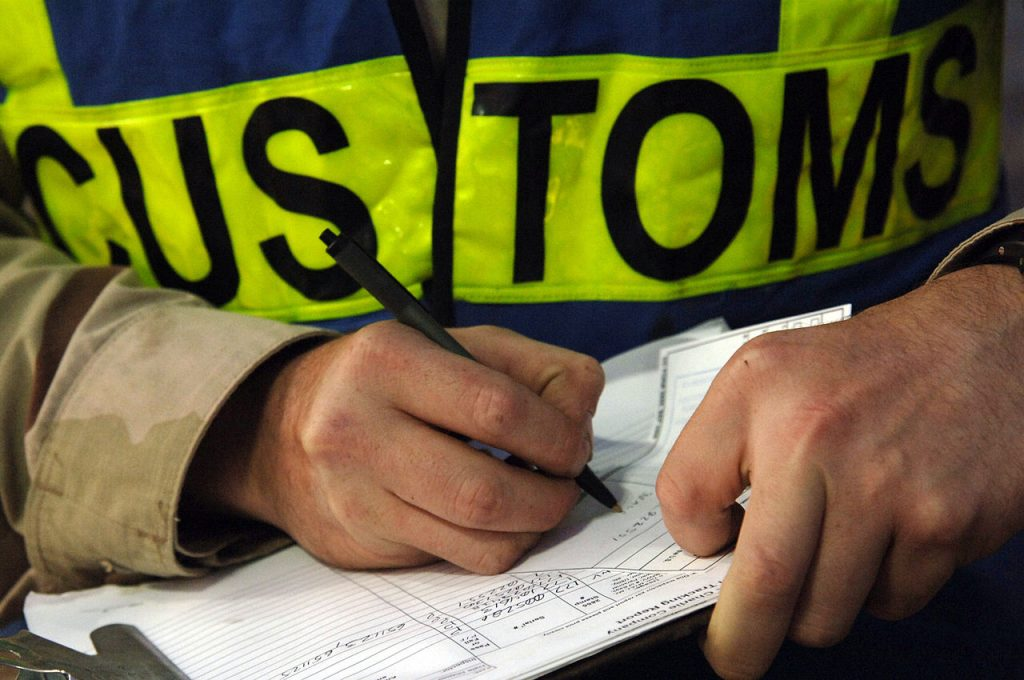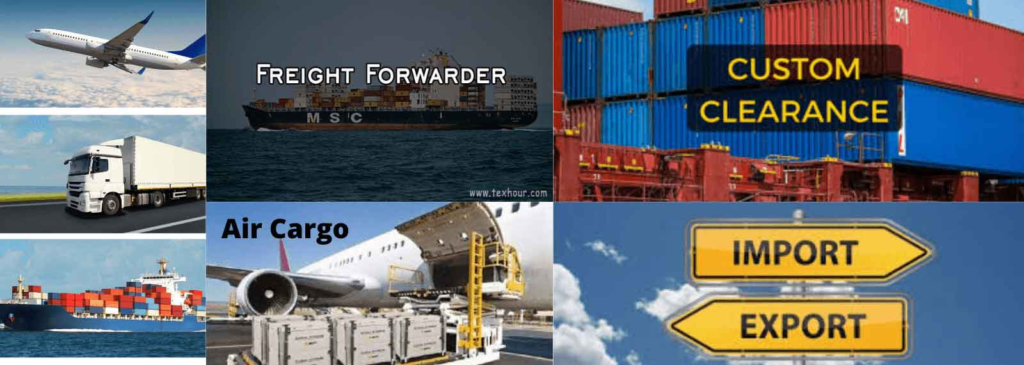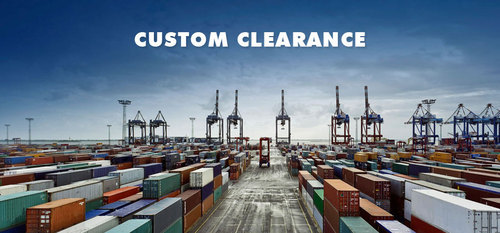Clearance Support Agent (1 years diploma)
Clearance Support Agent click here
Brief Job Description
Clearance Support Agents are also known as Clearance Process Executives. Individuals in this role are staff
who work in corporate offices and are responsible for assessing additional information required for
shipment clearance, contacting the consignee/consignor to obtain the required documents and submitting.
them to the customs to get inbound/outbound shipment clearance. They are a key part of the clearance
team as they perform the role of customer-facing to obtain the required documents and update them on
the clearance status.

Personal Attributes
This job requires the individual to work well with his/her team and achieve joint goals. The individual must
be able to prioritize and execute tasks within scheduled time limits. The individual should be able to
maintain high concentration levels throughout his/her shift.
Minimum Educational Qualification & Experience
12th Class with 6 Months of experience
relevant experience
OR
10th Class ( + ITI (2 years after Class
10th))
OR
10th Class (and pursuing continuous
regular schooling)
OR
Certificate-NSQF (Courier Associate –
Level 3) with 2 Years of experience
relevant experience
Minimum Level of Education for Training in
School
Pre-Requisite License or Training NA
Minimum Job Entry Age 18 Years
Last Reviewed On NA
Next Review Date NA
NSQC Approval Date
Version 3.0
Obtain existing information and assess additional information required for shipment clearance
Description
This unit is about obtaining existing information and assessing additional information required for
shipment clearance
Elements and Performance Criteria
Obtain requisite information for clearance support
To be competent, the user/individual on the job must be able to:
PC1. obtain the list of shipments that is not cleared by customs
PC2. collect and compile documents available for the shipments
PC3. categorize the shipments on the basis of their type
Assess additional information required for shipment clearance
To be competent, the user/individual on the job must be able to:
PC4. identify the type of shipment that is not cleared by customs
PC5. review the existing list of documents to assess the available information
PC6. understand the list of documents that are required for the clearance of the shipment
PC7. assess the additional information/documents that are required for clearance
PC8. document the list of information/documents required against each shipment
Knowledge and Understanding (KU)
The individual on the job needs to know and understand:
KU1. knowledge of organizational procedures
KU2. knowledge of paperwork required to seek payment approval from the consignee
KU3. knowledge of acceptable payment modes
KU4. risk and impact of not following defined procedures/work instructions
KU5. knowledge of all relevant safety and security procedures
KU6. knowledge of customs requirement for different kinds of shipments
KU7. knowledge on import/export controls
KU8. knowledge on specialized clearance procedures such as SEZ, etc
KU9. understanding of bill of entry/shipping bill and other documents pertaining to shipment
clearance
KU10. knowledge of different geographies
KU11. knowledge of customs valuation for determination of value on imported goods where
customs duty is levied
KU12. knowledge of customs acts and legal provisions
KU13. knowledge of operating computers
Generic Skills (GS)
User/individual on the job needs to know how to:
GS1. ability to write formal e-mails and reports
GS2. read and understand customs acts and legal provisions
GS3. read and understand various documents pertaining to customs clearance
GS4. read and understand e-mails
GS5. communicate clearly with consignees and peers
GS6. share best practices with peers and juniors
GS7. ability to make a judgment as to what additional documents are required for customs
clearance
GS8. ability to concentrate on task at hand and complete it without errors
GS9. be a team player and achieve joint goals.
GS10. flexibility to re-assess schedule in case of additional shipment hold-ups
GS11. ability to converse with the consignee in a suitable manner
GS12. understand the customer timelines and ensure that they are met.
GS13. identify trends/common causes for shipment hold-ups
GS14. identify the type of shipment and the customs regulations pertaining to it
GS15. ability to assess additional documents required for shipment clearance
GS16. ability to keep track of the progress of each shipment in real time until clearance
GS17. ability to concentrate on task at hand and complete it without errors
Contact the consignee and receive the required documents
Description
This unit is about contacting the consignee/consignor and receiving the required documents
Elements and Performance Criteria
Contact the consignee/consignor regarding documents required
To be competent, the user/individual on the job must be able to:
PC1. obtain the consignee’s/consignors contact number and e-mail address
PC2. understand the information/documents required from the consignee/consignor for shipment
clearance, before contacting
PC3. contact the consignee/consignor over phone, explain the context of the call and
communicate the reasons for shipment getting held up
PC4. communicate clearly the documents required for shipment clearance verbally
PC5. also communicate the documents required for shipment clearance and the address that is to
be sent, through an e-mail

PC6. provide consignee/consignor with duty and tax advice notification, if applicable
PC7. seek payment approval from the consignee/consignor when the duty and tax amounts
payable exceeds payment limits, if applicable
Receive the required documents
To be competent, the user/individual on the job must be able to:
PC8. follow up with the consignee/consignor for the required documents
PC9. obtain a soft copy of the required documents and check if they match the documents for
shipment clearance
PC10. receive the required document at the address shared
PC11. check if the documents received match the required documents for shipment clearance
PC12. thank the consignee/consignor once the documents are received
Knowledge and Understanding (KU)
The individual on the job needs to know and understand:
KU1. knowledge of organizational procedures
KU2. knowledge of paperwork required to seek payment approval from the consignee
KU3. knowledge of acceptable payment modes
KU4. risk and impact of not following defined procedures/work instructions
KU5. knowledge of all relevant safety and security procedures
KU6. knowledge of customs requirement for different kinds of shipments
KU7. knowledge on import/export controls
KU8. knowledge on specialized clearance procedures such as sez, etc
KU9. understanding of bill of entry/shipping bill and other documents pertaining to shipment
clearance
KU10. knowledge of different geographies
KU11. knowledge of customs valuation for determination of value on imported goods where
customs duty is levied
KU12. knowledge of customs acts and legal provisions
KU13. knowledge of operating computers
Generic Skills (GS)
User/individual on the job needs to know how to:
GS1. ability to write formal e-mails and reports
GS2. read and understand customs acts and legal provisions
GS3. read and understand various documents pertaining to customs clearance
GS4. read and understand e-mails
GS5. communicate clearly with consignees and peers
GS6. share best practices with peers and juniors
GS7. ability to make a judgment as to what additional documents are required for customs
clearance
GS8. ability to concentrate on task at hand and complete it without errors
GS9. be a team player and achieve joint goals.
GS10. flexibility to re-assess schedule in case of additional shipment hold-ups
GS11. ability to converse with the consignee in a suitable manner
GS12. understand the customer timelines and ensure that they are met.
GS13. identify trends/common causes for shipment hold-ups
GS14. identify the type of shipment and the customs regulations pertaining to it
GS15. ability to assess additional documents required for shipment clearance
GS16. ability to keep track of the progress of each shipment in real time until clearance
GS17. ability to concentrate on task at hand and complete it without errors
Submit documents to customs and followup to ensure that shipment is cleared
Description
This unit is about submitting documents to customs and following-up to ensure that shipment is cleared
Elements and Performance Criteria
Submit documents to customs
To be competent, the user/individual on the job must be able to:
PC1. contact the relevant customs agent/broker to intimate regarding shipment clearance
PC2. share the documents received with the customs agent/broker
PC3. follow up with the customs agent/broker to ensure documents are submitted to customs
Follow-up to ensure that shipment is cleared
To be competent, the user/individual on the job must be able to:
PC4. follow up with the customs agent/broker to check the latest status of the shipment clearance
PC5. update consignee/consignor on the latest status of the shipment clearance
PC6. notify consignee/consignor if any additional documents are required
PC7. request the consignee/consignor to send the additional documents, if required, and submit
them to customs
PC8. inform the consignee/consignor once the shipment is cleared and redirect him to the customer
service team for any queries on the delivery date of the shipment
Knowledge and Understanding (KU)
The individual on the job needs to know and understand:
KU1. knowledge of organizational procedures
KU2. knowledge of paperwork required to seek payment approval from the consignee
KU3. knowledge of acceptable payment modes

KU4. risk and impact of not following defined procedures/work instructions
KU5. knowledge of all relevant safety and security procedures
KU6. knowledge of customs requirement for different kinds of shipments
KU7. knowledge on import/export controls
KU8. knowledge on specialized clearance procedures such as sez, etc
KU9. understanding of bill of entry/shipping bill and other documents pertaining to shipment
clearance
KU10. knowledge of different geographies
KU11. knowledge of customs valuation for determination of value on imported goods where
customs duty is levied
KU12. knowledge of customs acts and legal provisions
KU13. knowledge of operating computers
Generic Skills (GS)
User/individual on the job needs to know how to:
GS1. ability to write formal e-mails and reports
GS2. read and understand customs acts and legal provisions
GS3. read and understand various documents pertaining to customs clearance
GS4. read and understand e-mails
GS5. communicate clearly with consignees and peers
GS6. share best practices with peers and juniors
GS7. ability to make a judgment as to what additional documents are required for customs
clearance
GS8. ability to concentrate on task at hand and complete it without errors
GS9. be a team player and achieve joint goals.
GS10. flexibility to re-assess schedule in case of additional shipment hold-ups
GS11. ability to converse with the consignee in a suitable manner
GS12. understand the customer timelines and ensure that they are met.
GS13. identify trends/common causes for shipment hold-ups
GS14. identify the type of shipment and the customs regulations pertaining to it
GS15. ability to assess additional documents required for shipment clearance
GS16. ability to keep track of the progress of each shipment in real time until clearance
GS17. ability to concentrate on task at hand and complete it without errors
Maintain Heath and Safety and security standards during shipment clarance
Description
This unit is about maintaining health, safety and security standards during shipment clearance
Elements and Performance Criteria
Maintain health, safety and security standards during shipment clearance
To be competent, the user/individual on the job must be able to:
PC1. Follow all security procedures with respect to company information
PC2. Follow all precautionary data handling procedures
PC3. Maintain clean work table area
PC4. Recognize and report unsafe conditions and practices
Knowledge and Understanding (KU)
The individual on the job needs to know and understand:
KU1. knowledge of organizational procedures
KU2. knowledge of paperwork required to seek payment approval from the consignee
KU3. knowledge of acceptable payment modes
KU4. risk and impact of not following defined procedures/work instructions
KU5. knowledge of all relevant safety and security procedures
KU6. knowledge of customs requirement for different kinds of shipments
KU7. knowledge on import/export controls
KU8. knowledge on specialized clearance procedures such as sez, etc
KU9. understanding of bill of entry/shipping bill and other documents pertaining to shipment
clearance
KU10. knowledge of different geographies.
KU11. knowledge of customs valuation for determination of value on imported goods where
customs duty is levied
KU12. knowledge of customs acts and legal provisions
KU13. knowledge of operating computers
Generic Skills (GS)
User/individual on the job needs to know how to:
GS1. ability to write formal e-mails and reports
GS2. read and understand customs acts and legal provisions
GS3. read and understand various documents pertaining to customs clearance
GS4. read and understand e-mails
GS5. communicate clearly with consignees and peers
GS6. share best practices with peers and juniors
GS7. ability to make a judgment as to what additional documents are required for customs
clearance

GS8. ability to concentrate on task at hand and complete it without errors
GS9. be a team player and achieve joint goals
GS10. flexibility to re-assess schedule in case of additional shipment hold-ups
GS11. ability to converse with the consignee in a suitable manner
GS12. understand the customer timelines and ensure that they are met.
GS13. identify trends/common causes for shipment hold-ups
GS14. identify the type of shipment and the customs regulations pertaining to it
GS15. ability to assess additional documents required for shipment clearance
GS16. ability to keep track of the progress of each shipment in real time until clearance
GS17. ability to concentrate on task at hand and complete it without errors
Employability Skills (60 Hours)
Description
This unit is about employability skills, Constitutional values, becoming a professional in the 21st Century,
digital, financial, and legal literacy, diversity and Inclusion, English and communication skills, customer
service, entrepreneurship, and apprenticeship, getting ready for jobs and career development.
Scope
The scope covers the following :
Introduction to Employability Skills
Constitutional values – Citizenship
Becoming a Professional in the 21st Century
Basic English Skills
Career Development & Goal Setting
Communication Skills
Diversity & Inclusion
Financial and Legal Literacy
Essential Digital Skills
Entrepreneurship
Customer Service
Getting ready for Apprenticeship & Jobs
Elements and Performance Criteria
Introduction to Employability Skills
To be competent, the user/individual on the job must be able to:
PC1. identify employability skills required for jobs in various industries
PC2. identify and explore learning and employability portals
Constitutional values – Citizenship
To be competent, the user/individual on the job must be able to:
PC3. recognize the significance of constitutional values, including civic rights and duties,
citizenship, responsibility towards society etc. and personal values and ethics such as
honesty, integrity, caring and respecting others, etc.
PC4. follow environmentally sustainable practices
Becoming a Professional in the 21st Century
To be competent, the user/individual on the job must be able to:
PC5. recognize the significance of 21st Century Skills for employment
PC6. practice the 21st Century Skills such as Self-Awareness, Behaviour Skills, time management,
critical and adaptive thinking, problem-solving, creative thinking, social and cultural
awareness, emotional awareness, learning to learn for continuous learning etc. in personal
and professional life
Basic English Skills
To be competent, the user/individual on the job must be able to:
PC7. use basic English for everyday conversation in different contexts, in person and over the
telephone
PC8. read and understand routine information, notes, instructions, mails, letters etc. written in
English
PC9. write short messages, notes, letters, e-mails etc. in English
Career Development & Goal Setting
To be competent, the user/individual on the job must be able to:
PC10. understand the difference between job and career
PC11. prepare a career development plan with short- and long-term goals, based on aptitude
Communication Skills
To be competent, the user/individual on the job must be able to:
PC12. follow verbal and non-verbal communication etiquette and active listening techniques in
various settings
PC13. work collaboratively with others in a team
Diversity & Inclusion
To be competent, the user/individual on the job must be able to:
PC14. communicate and behave appropriately with all genders and PwD
PC15. escalate any issues related to sexual harassment at workplace according to POSH Act
Financial and Legal Literacy
To be competent, the user/individual on the job must be able to:
PC16. select financial institutions, products and services as per requirement
PC17. carry out offline and online financial transactions, safely and securely
PC18. identify common components of salary and compute income, expenses, taxes, investments
etc
PC19. identify relevant rights and laws and use legal aids to fight against legal exploitation
Essential Digital Skills
To be competent, the user/individual on the job must be able to:
PC20. operate digital devices and carry out basic internet operations securely and safely
PC21. use e- mail and social media platforms and virtual collaboration tools to work effectively
PC22. use basic features of word processor, spreadsheets, and presentations

Entrepreneurship
To be competent, the user/individual on the job must be able to:
PC23. identify different types of Entrepreneurship and Enterprises and assess opportunities for
potential business through research
PC24. develop a business plan and a work model, considering the 4Ps of Marketing Product, Price,
Place and Promotion
PC25. identify sources of funding, anticipate, and mitigate any financial/ legal hurdles for the
potential business opportunity
Customer Service
To be competent, the user/individual on the job must be able to:
PC26. identify different types of customers
PC27. identify and respond to customer requests and needs in a professional manner.
PC28. follow appropriate hygiene and grooming standards
Getting ready for apprenticeship & Jobs
To be competent, the user/individual on the job must be able to:
PC29. create a professional Curriculum vitae (Résumé)
PC30. search for suitable jobs using reliable offline and online sources such as Employment
exchange, recruitment agencies, newspapers etc. and job portals, respectively
PC31. apply to identified job openings using offline /online methods as per requirement
PC32. answer questions politely, with clarity and confidence, during recruitment and selection
PC33. identify apprenticeship opportunities and register for it as per guidelines and requirements

Knowledge and Understanding (KU)
The individual on the job needs to know and understand:
KU1. need for employability skills and different learning and employability related portals
KU2. various constitutional and personal values
KU3. different environmentally sustainable practices and their importance
KU4. Twenty first (21st) century skills and their importance
KU5. how to use English language for effective verbal (face to face and telephonic) and written
communication in formal and informal set up
KU6. importance of career development and setting long- and short-term goals
KU7. about effective communication
KU8. POSH Act
KU9. Gender sensitivity and inclusivity
KU10. different types of financial institutes, products, and services
KU11. how to compute income and expenditure
KU12. importance of maintaining safety and security in offline and online financial transactions
KU13. different legal rights and laws
KU14. different types of digital devices and the procedure to operate them safely and securely
KU15. how to create and operate an e- mail account and use applications such as word processors,
spreadsheets etc.
KU16. how to identify business opportunities
KU17. types and needs of customers
KU18. how to apply for a job and prepare for an interview
KU19. apprenticeship scheme and the process of registering on apprenticeship portal

Generic Skills (GS)
User/individual on the job needs to know how to:
GS1. read and write different types of documents/instructions/correspondence
GS2. communicate effectively using appropriate language in formal and informal settings
GS3. behave politely and appropriately with all
GS4. how to work in a virtual mode
GS5. perform calculations efficiently
GS6. solve problems effectively
GS7. pay attention to details
GS8. manage time efficiently
GS9. maintain hygiene and sanitization to avoid infection







